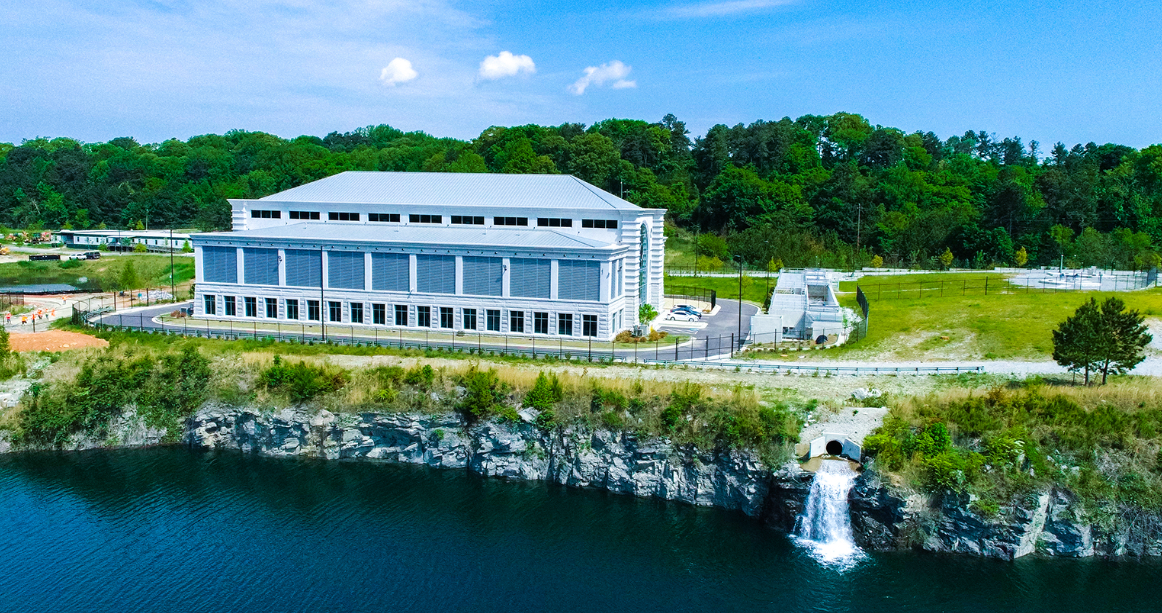KEY POINTS
The Atlanta City Council is taking steps to tighten regulations to approve data center permits in the city. The proposed ordinance, backed by 13 of 16 council members, aims to amend the city’s zoning laws to require special use permits for data center construction.
The proposal follows a ban on building data centers along the Atlanta Beltline in 2024. The Beltline is a 22-mile network of public parks, multi-use trails, transit, and affordable housing undergoing urban redevelopment.
Environmental Impact Considerations
The proposed ordinance recognizes data centers’ vital role in the digital economy while highlighting their potential impact on the city’s water and energy resources.
One concern the proposal addresses is increased water demand from data centers, which could strain Atlanta’s ability to provide reliable water service to residents and businesses. In 2020, the city completed construction of a reservoir and pump station that increased Atlanta’s reserve water supply from three days to as many as 90.
Substantial electricity requirements for data centers are also addressed in the proposal. City officials appear concerned that data centers’ commanding electricity consumption could further burden the city’s infrastructure.
Special Permit Requirements
Under the tightened regulations, if codified into law, data center construction proposals will need to submit comprehensive plans for permits to be issued.
Plans would address, in preconstruction, expected water consumption and conservation measures, energy consumption, and stormwater management.
The energy consumption plan, for instance, would provide estimates of peak electricity demand, propose strategies to mitigate the strain on local power infrastructure, and suggest improvements or alternatives to minimize the need for additional transmission lines.
City departments, such as planning and watershed management, would review plans to evaluate each proposal for permitting decisions.

Atlanta’s Franklin Pump Station and Reservoir, shown in an undated image, was completed in December 2020 to increase Atlanta’s reserve water supply from three days to as many as 90. Image: City of Atlanta, Dept. of Watershed Management
Size and Aesthetic Standards
The proposed size restrictions include a maximum floor area of 150,000 square feet per floor for general data centers and 300,000 square feet per floor for data centers in unified development plans.
In addition to size restrictions, the ordinance sets building aesthetics and safety standards.
New data centers cannot use barbed wire, chain link, or razor wire fencing, and specific building materials like aluminum siding or synthetic stucco are prohibited for exteriors facing the public right-of-way.
Historical Building Conversions
The ordinance also says that only buildings older than 50 years may be converted into data centers, further preserving the city’s historical architecture.
Additionally, data centers cannot be located within 2,640 feet of high-capacity transit stops, such as bus or public transportation stations.
The proposed data center ordinance reflects Atlanta’s efforts to balance economic growth and environmental responsibility.
As the demand for data centers rises, these regulations aim to help the city sustainably manage its water and energy resources while accommodating new technological developments.
Construction economy news and insights you can act on.
Subscribe to our economic reports
About ConstructConnect
At ConstructConnect, our software solutions provide the information construction professionals need to start every project on a solid foundation. For more than 100 years, our insights and market intelligence have empowered commercial firms, manufacturers, trade contractors, and architects to make data-driven decisions and maximize productivity.
ConstructConnect is a business unit of Roper Technologies (Nasdaq: ROP), part of the Nasdaq 100, S&P 500, and Fortune 1000.
For more information, visit constructconnect.com
